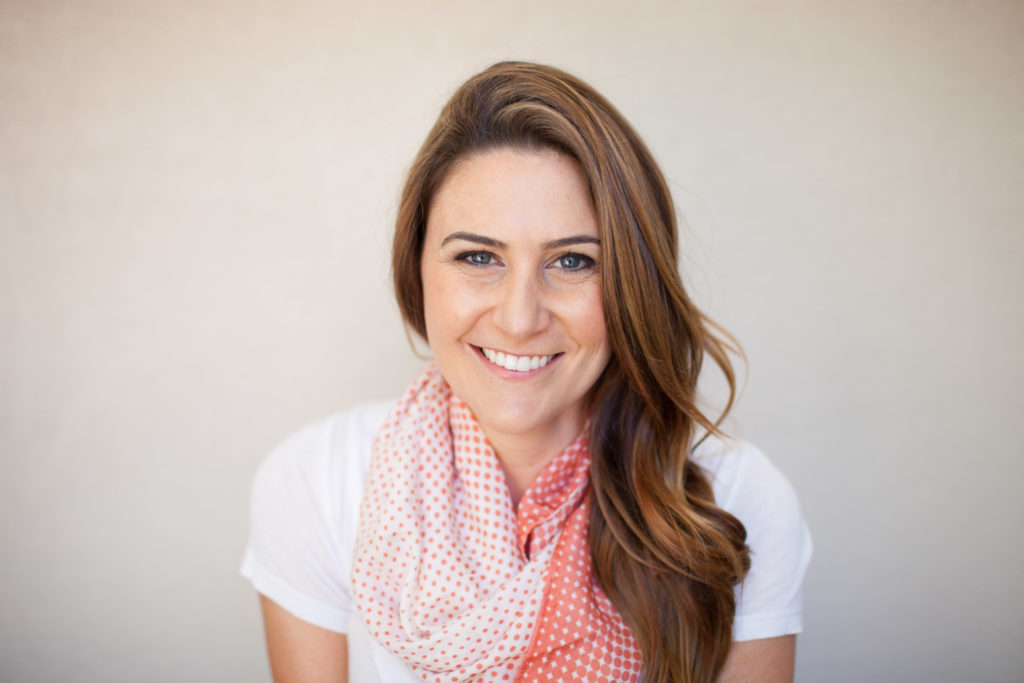Monique Bowley has spent more than 13 years producing radio both commercially and with the ABC, and is the Executive Producer of Podcasts at the Mamamia Podcast Network. She produces their flagship show Mamamia Out Loud.
She talked to us about her love of feisty conversations, audience correspondence and kicking female stereotypes to the curb.

What piece of audio has had the most profound effect on you – as a listener, as an audio maker or both?
Radio National’s All In The Mind ran a story called ‘Everyone is Watching‘ back in 2015 that I still go back and listen to sometimes. Joel Werner went to New York and interviewed people who suffer from a mental illness where they believe they are the stars of a reality TV show: known as the Truman Show delusion. It’s a juicy story, beautifully told, and mixed to perfection. There is no fat left on the 28 minutes – everything second is accounted for with something compelling or engaging, and it weaves a narrative arc by using someone whose experienced the syndrome, with psychological experts. It’s just SO well done, a kind of story you can’t leave halfway through because you need to hear the end, and so culturally pertinent.
Where did the idea for Mamamia Out Loud come from?
The idea for Mamamia Out Loud was to capture the kind of conversations that smart women have when they’re together. Nothing is off limits; we cover ground from politics to pop culture. For so long, women have been relegated to a stereotype in broadcast radio: either the sidekick on a breakfast show or the inoffensive afternoon radio host. This podcast is the opposite to that. We stretch out, we go deep on issues, we don’t play roles, we don’t always agree, we don’t laugh things off if they get too hard, we are unapologetically feminist. We call out bullshit when we see it, and sometimes we don’t always have the answers. It’s complex and that’s why it’s great.
What’s you r favourite part of making Mamamia Out Loud?
r favourite part of making Mamamia Out Loud?
I love listening to the correspondence we get over the podcast phone: listeners ring in with the craziest, funniest, wildest opinions. I’m thinking it could be an entire show of it’s own.
What’s the hardest part of producing Mamamia Out Loud?
The hours it takes, to be honest. It’s so much more than just plopping down in front of a microphone and having a chat. Content selection is paramount: both things that the audience are going to like and the talent on the show are going to like is sometimes a tricky line to tread. And a lot ends up on the cutting room floor, which is always hard.
What’s the best thing abut working with sound?
The intimacy it creates. We get reams of emails from people saying ‘I feel like you guys are my friends!’ and that is the best feeling in the world. Also when people write in saying ‘I heard that and it changed me’, or men that say ‘I used to hate Mamamia and now I love you … you guys made me a feminist.’ The intimacy, the connection and the engagement is everything for us.
We get reams of emails from people saying ‘I feel like you guys are my friends!’ and that is the best feeling in the world.
What’s the best (or worst) advice you’ve received about podcasting?
The best advice is to be yourself. The worst advice was a program director that told me once that women only want to talk about baking and craft, and to stop talking about politics.
What has been your biggest lesson as a producer so far?
Back up your work. Save regularly. Save regularly. Save regularly. It’s not a matter of if, but when it will happen. I’ve been through those tears, I’ve been through the desperate scrabble to recover audio. It is the worst.
Do you interact with your audience, or receive feedback or criticism about your work?
Yes, it is by far the best part of my job. I live for it. Even the criticism. I feel like if people take the time to tell me how crap I am, it means they care enough to say it. That’s a great thing; it means they are engaged on a deep level with the show. For the most part, any criticism is delivered really sensibly and backed up with proper arguments, and sent with love, which online is just remarkable. It makes me really proud to be the receiver of all this thought and opinion.
If you could go out to dinner with any audio maker, who would it be – and what would you talk about?
Richard Fidler. It would be best dinner party conversation I’d ever have. The man doesn’t know how to have a poor conversation. He could tell me all the famous guests he’s turned down, what makes a brilliant story, the worst guests to interview, the best opening line for a conversation, and I wouldn’t talk at all, except to ask questions and scribble notes.
What are you listening to at the moment?
Work-related: A Mamamia show that I’ve been editing called Can’t Live Without, where celebrities of the lifestyle world give us their guide to bringing joy to your life; must-have kitchen implements, the item that can transform a living room, the perfect thing to cook for a Sunday lunch.
Pleasure-related: The BabySitters Club Club – two guys in their 20s that have gone back through the annuls of The Babysitters Club books and now review them with a modern lens. It’s half earnest, and half a piss-take, and fully brilliant.
What do you think is unique about Australian audio?
Localism – telling Australian stories, or looking at world stories with an Australian lens.
What’s next for you as a producer?
Make some more shows.